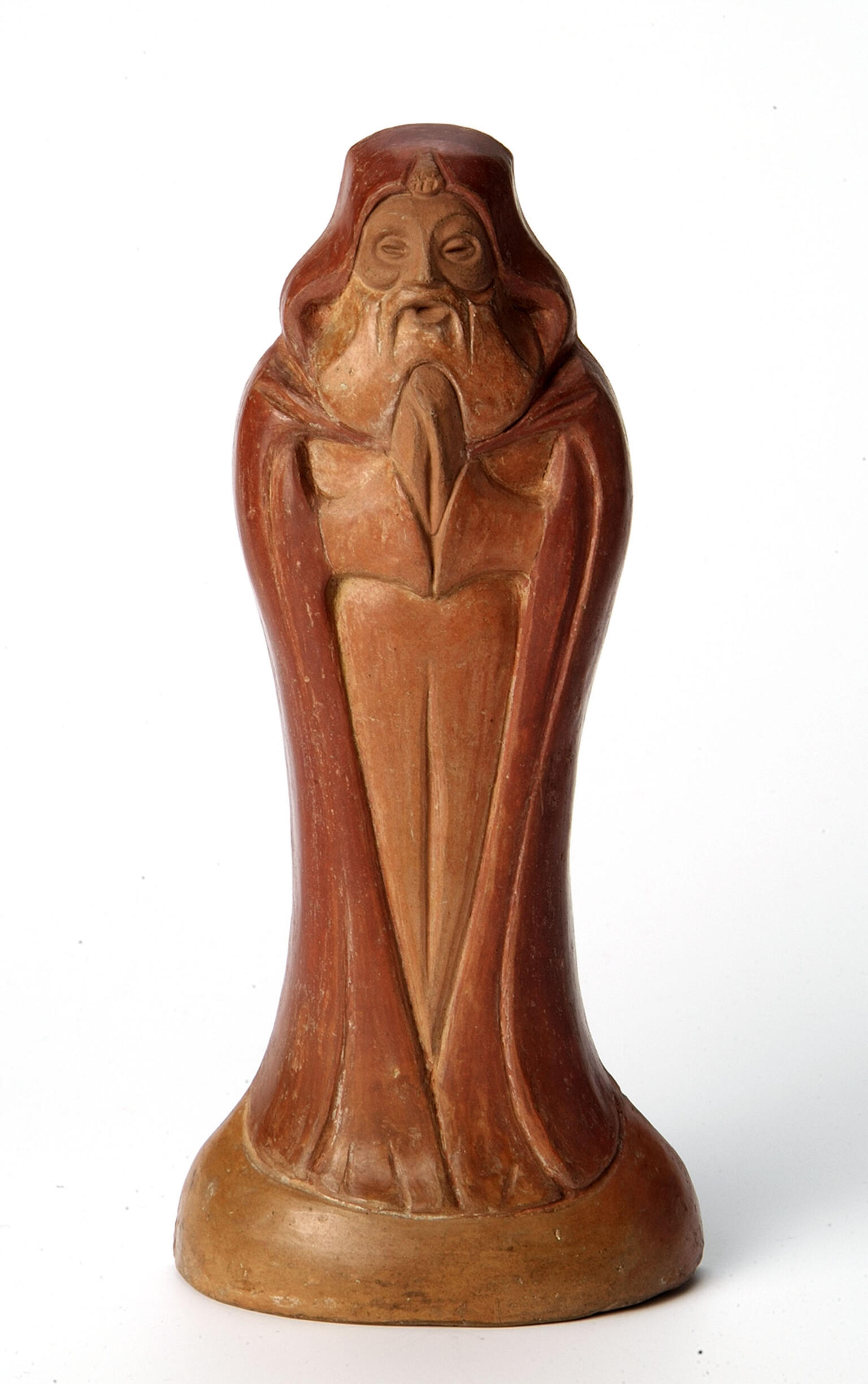Moses’ Death
Joseph Mendes da Costa
1928–1938
Mendes da Costa was best known for the reliefs he sculpted for buildings in Amsterdam (many of which were figures of animals) in the style of the Niewe Kunst, the Dutch variant of Art Nouveau. But he also made small earthenware sculptures inspired by the Bible, such as this one, entitled Moses’ Death. He first learned how to carve from his father, a tombstone maker.
Credits
Collection Jewish Historical Museum, Amsterdam.
Published in: The Posen Library of Jewish Culture and Civilization, vol. 8.
You may also like
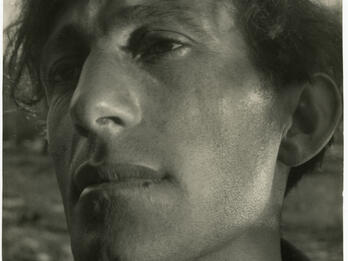
Jew from Poland
Lerski’s portrait of a young Polish Jewish immigrant to Palestine is in his distinctive, expressionist style. Using mirrors and reflectors to emphasize the transformative powers of light, Lerski liked…

The Collector
The Collector dates from the last year of Israëls’s life. It is in the style of Dutch impressionism, which emphasized the essence of a subject, rather than its light and color as did French…
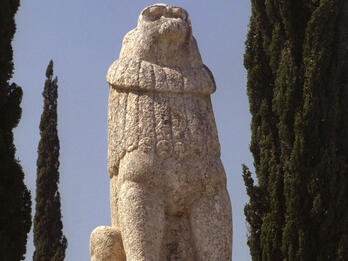
Roaring Lion
This Assyrian-style monument commemorates the death of Josef Trumpeldor, who was killed by Arabs in 1920 at the Jewish settlement of Tel Hai. His heroic death and the idea of “one against many” became…
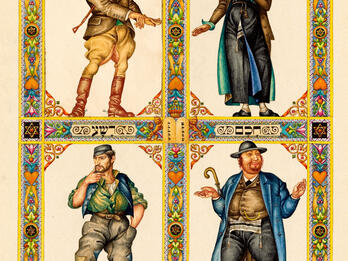
The Four Sons
This 1934 illustration of the Passover story of the four sons features a caricature of the “wicked” son dressed as Hitler.
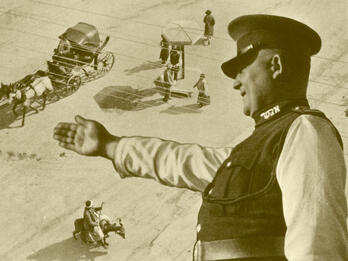
A Jewish Policeman
The photomontages that Benor-Kalter began to make in the 1930s were a departure from his earlier straightforward style and allowed him to use photography to create visual metaphors. Here, a…
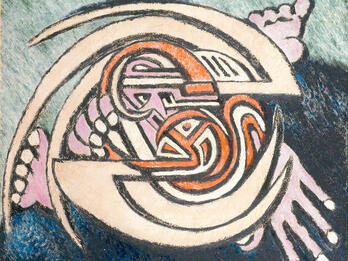
Jacob Wrestling with the Angel
This painting has both figurative and abstract elements. The shapes representing the angel are a dynamic swirl of mystical symbols. Ben-Zion often turned to the Bible for inspiration for his work. At…
Engage with this Source
Public Access
Image
Places:
Amsterdam, Netherlands
Creator Bio
Joseph Mendes da Costa
1863–1939
The sculptor and ceramicist Joseph Mendes da Costa was born in Amsterdam, the son of the sculptor Moses Mendes da Costa. He was taught by his father initially and later enrolled in art school. He was known for his sculpted ornaments and reliefs for buildings, many of which featured owls and monkeys (they were also prominent in his smaller sculptures and bronze work). His small statuettes were often inspired by the Bible or by the daily life of Jews in Amsterdam.
You may also like

Jew from Poland
Lerski’s portrait of a young Polish Jewish immigrant to Palestine is in his distinctive, expressionist style. Using mirrors and reflectors to emphasize the transformative powers of light, Lerski liked…

The Collector
The Collector dates from the last year of Israëls’s life. It is in the style of Dutch impressionism, which emphasized the essence of a subject, rather than its light and color as did French…

Roaring Lion
This Assyrian-style monument commemorates the death of Josef Trumpeldor, who was killed by Arabs in 1920 at the Jewish settlement of Tel Hai. His heroic death and the idea of “one against many” became…

The Four Sons
This 1934 illustration of the Passover story of the four sons features a caricature of the “wicked” son dressed as Hitler.

A Jewish Policeman
The photomontages that Benor-Kalter began to make in the 1930s were a departure from his earlier straightforward style and allowed him to use photography to create visual metaphors. Here, a…

Jacob Wrestling with the Angel
This painting has both figurative and abstract elements. The shapes representing the angel are a dynamic swirl of mystical symbols. Ben-Zion often turned to the Bible for inspiration for his work. At…


